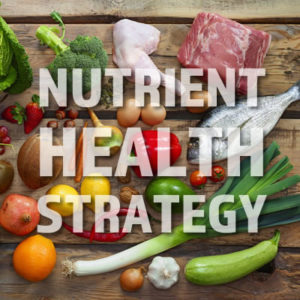Vitamin A
Vitamin A is a fat-soluble vitamin and potent antioxidant. It plays a critical role in maintaining eye health, brain function, healthy skin, immune function, reproduction and cellular communication. Like all antioxidants, it’s also involved in reducing inflammation through fighting free radical damage.
Vitamin A is critical for vision as an essential component of rhodopsin, a protein that absorbs light in the retinal receptors. Vitamin A also plays a critical role in the normal formation and maintenance of the heart, lungs, kidneys and other organs. We can get vitamin A from:
- Foods containing vitamin A.
- Beta-carotene in plants and vegetables, a nutrient your body converts to vitamin A after consumption. It is converted in the body to retinal and retinoic acid.

How much vitamin A do I need?
The Recommended Dietary Allowance (RDA) is 900μg (mcg) retinol activity equivalents (RAE)/day. The RAE sounds complicated, but it's based upon the fact that animal based vitamin A is 12x the activity of beta-carotene. The Tolerable Upper Intake Level (UL) for adults is set at 3000μg/day, the only issued caused by mega doses of vitamin A is the effect on vitamin D. Vitamin D requires a small amount of vitamin A (retinol) in order to work correctly, but vitamin A and vitamin D attach themselves to the same cell receptors.
Vitamin A sources
- Halibut liver oil: This has 50x the vitamin A of cod liver oil. Plus the supplements are very cheap. A typical halibut liver capsule has 1800-3000mcg plus some vitamin D. Natural factors has 3000mcg version, so take one every 2 days, a 180 capsule bottle will last you a year for $14. Halibut is is not as popular as heavily processed and unsustainable sources of cod liver oil, this makes it a great cheap option.
- Beef liver (100g): 8000mcg. Over consumption of liver might cause an issue with vitamin D availability. Chicken liver has about 2/3rds of the vitamin A content. lambs liver has 1/3rd of the vitamin A compared to beef.
- Liver pâté. Not everyone is a liver fan, but pâté is a great tasting alternative. You can make your own very easily. Try and avoid supermarket bought pate, go for a weekly portion in a good restaurant (that makes its own).
- Sweet potato: 1400mcg.
- Goose liver pate (100g): 1000mcg.
- Tuna (1 tin of bluefin): 700mcg.
- Spinach (1/2 cup): 570mcg.
- Carrots (1 medium): 450mcg.
- Nori (seaweed 100g): 260mcg
- Mackerel (100g): 250mcg.
- Salmon (100g): 150mcg.
- Red pepper: 150mcg.
- Grass fed butter (1 tablespoon): 100mcg.
- Egg (1 large): 80mcg.
- Tuna (1 tin of bluefin): 700mcg
Most of the vitamin A that we consume goes to the liver to be stored until it is needed by another part of the body. The most abundant source of vitamin A is beef liver. Sweet potatoes and carrots are a superb vegetarian source.
The effects of alcohol
Alcohol screws up your vitamin A: The primary pathway for ethanol metabolism in the human body is its oxidation from ethanol to acetaldehyde (toxic) and then to acetic acid (going on to give energy or fat deposits). Similarly, the metabolism of dietary vitamin A follows a parallel pathway, including the oxidative metabolism of retinol to retinaldehyde, then to the canonically active form of vitamin A, retinoic acid. Alcoholics often have severe vitamin A deficiencies. Alcoholic fatty liver disease or non-alcoholic fatty liver disease will cause big problems with your livers ability to process vitamin A.
If you consume alcohol, it is important to get a consistent source of retinol vitamin A from foods.
Vitamin A intake strategy
Our advice would be to mix up your retinol and beta-carotene food sources as you can't guarantee a good conversion of beta-carotene. Eat lots of carrots, red peppers, mackerel, pastured eggs, quality tuna, grass fed butter. Try and eat at least a couple of sweet potatoes a week plus a liver product twice a week (liver, liver wurst or liver pate). These are all nutrient dense foods that will transform your health. Halibut oil capsules are a great back up.
RDA: 700mcg (RAE) for women and 900mcg (RAE) for men.
Theraputic dose: 1500-2000mcg (If you drink lots of alcohol or have a fatty liver, you need more).
Upper tolerable limit: 3000mcg (RAE).
Notes: Ensure you have plenty of vitamin D and zinc in your diet. Iron and gut health is also important.
Eye Health
Vitamin A is critical for vision as an essential component of rhodopsin, a protein that absorbs light in the retinal receptors. It supports the normal differentiation and functioning of the conjunctival membranes and cornea

